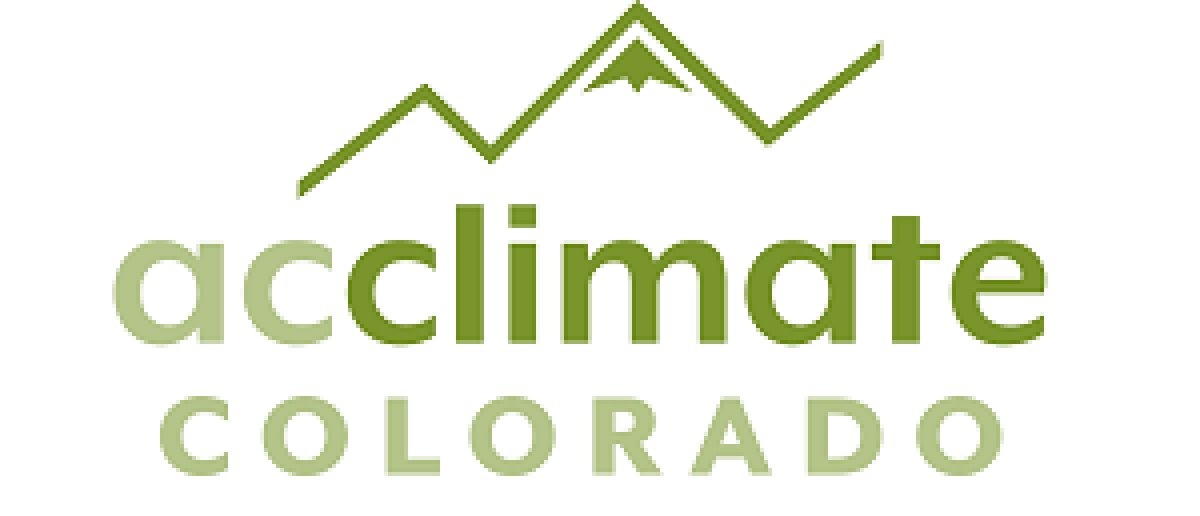We didn’t celebrate with cake and ice cream, but the Colorado Health Institute’s Acclimate team marked an important birthday earlier this year. CHI’s Colorado’s Health and Climate Policy Agenda, published in collaboration with our Acclimate Action Team, turned one.
The ambitious policy agenda was created as a call to action to protect communities from the health impacts of climate change and builds on our work to connect climate change and health. While climate change impacts all of us, it affects some communities more than others. Often, Coloradans with the fewest resources are at the highest risk. And while much still needs to be done, there’s a lot to celebrate.
The strategies in the policy agenda fall into five areas — planning and adaptation, infrastructure, workforce capacity, data and research, and communications. In the past year, interest in these policy areas has grown. Members of the Action Team have championed and expanded on various strategies. And we’re proud of the momentum we’ve created in just 12 months.
Infrastructure
Several Action Team members advanced strategies related to extreme heat and the right to cool (Strategy 2.1). Using data from CHI’s Health and Climate Index and community interviews, Healthy Air and Water Colorado (HAWC) published a report on Denver residents’ access to cooling. This work incorporated the diverse voices of people in the neighborhoods that are most affected by extreme heat. Then early this year, they followed up with a policy focused report for state and local lawmakers.
The Colorado Department of Health and Environment (CDPHE) also published extreme heat adaptation recommendations, in partnership with University of Colorado Master’s of the Environment Extreme Heat Capstone Team, Victoria Bloom, A.J. Carrillo, and Derrek Wilson. These recommendations helped inform action items in the Colorado Climate Preparedness Roadmap, a project CHI worked on with the Governor’s Office of Climate Preparedness and Disaster Recovery.
Workforce Capacity
A physician at the University of Colorado School of Medicine and the team at the Division of Insurance worked with CHI to advance workforce capacity goals. Brittany Denzer, MD, is working to integrate climate electronic health record data to better record patients’ health risks from climate events and offer them tips on how to adapt (Strategies 3.2 and 3.5). She is also training residents on the connection between climate and health.
Recognizing the dangers of being uninsured or underinsured for wildfires and their associated risks in Colorado, the Division of Insurance (DOI) is working with CHI to research recommendations to support and educate home and property owners of their risks. In 2024 CHI and DOI are developing best practices, solutions, and a toolkit of ways homeowners, renters, researchers, insurance carriers, and governments can better prepare communities for wildfires (Strategy 3.3).
Data and Research
Every other year, CHI surveys approximately 10,000 Colorado households. In 2023, our Colorado Health Access Survey asked questions specific to climate change and health (Strategy 4.2a). The data show how many Coloradans believe climate change has affected their health, what impacts climate change has had on their health, and whether they believe their community is prepared to deal with a climate-related disaster. Read the findings.
Action Team members from Cultivando, a Latino community advocacy group in Adams County, are monitoring local air quality levels and leading the fight for environmental justice (Strategy 4.4). CHI helped share their preliminary findings and will continue to elevate this work when they share their final report this spring. We were thrilled to partner with them for a session during Hot Issues in Health.
Communication
Over the past year, CHI has collected feedback from the Action Team on the topics, groups, and priorities for health-and-climate-related communication materials for communities (Strategy 5.1). CHI sought funding to support the cost of distributing these materials but needs additional funds to implement this strategy.
As a nonpartisan nonprofit, CHI does not advocate for specific legislation. Rather, we convene the Action Team, champion their work, share health-and-climate-related findings, and provide technical assistance (data, research and evaluation, sensemaking, thought partnership, convening, presentations, and climate communications) to advance the health of all Coloradans. CHI’s Acclimate team met with more than three dozen organizations and presented the policy agenda to hundreds of people locally and nationally. Presentations included the EcoAmerica Climate and Health Training for public health institutes, the Council on Foundations national conference, the Climate Philanthropy Network, the Climate Energy Solutions Climate Accelerator, and CHI’s Hot Issues in Health conference.
CHI also seeks out contract work that will improve health and climate outcomes for Coloradans and their communities. In 2023, in addition to working with the Division of Insurance and the Office of Climate and Disaster Preparedness, CHI partnered with Kaiser Permanente Colorado to create recommendations for health care systems and philanthropic organizations to advance climate resilience for community health.
If you or your organization would like to join the Acclimate Action Team or need support or technical assistance around a health and climate related initiative, please contact us.



